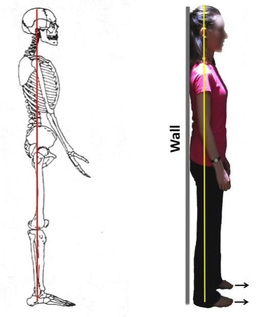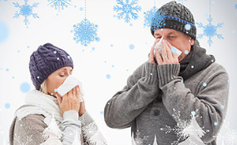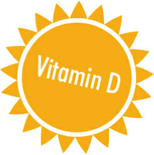|
Posture is Important We all take our posture for granted and rarely think about how our activities affect our posture and how our posture affects our health. Many of us don’t even know what good posture looks like. Here are a few tips from our friendly physiotherapist. Poor posture can lead to pain, discomfort and loss of function. For example:
Good posture is the position of the body puts the least strain on the muscles and joints. Your posture is good when the shoulders are down and the back and the three natural curves of the spine are maintained while standing, sitting, lying down or being active. What does good posture look like? From a side view if you were to put a straight line from your ears it should pass through the middle of your shoulders, knees and ankles. Hints on maintaining good posture: Check your posture using the reflections of shop windows or mirrors and correct if needed. 
If you want any help to improve your posture our friendly physiotherapist can help,
just contact Therapy Professionals Ltd. Ph: (03) 377 5280 Email: [email protected]  Prevent winter illness The elderly and disabled are at a higher risk of complications from winter illness, such as:
When we’re caring for people it is important to look after ourselves and those we are caring for. Here are some tips on preventing winter illnesses: 1. Get a flu vaccination. 2. Keep hygiene up by
3. Exercise – 30- 60 minutes at least three times a week. Guidelines on when to and when not to exercise. 4. Eat a healthy diet – have three meals a day that includes dairy, fruit, vegetables, protein, and cereals. 5. Drink plenty of fluids – eight cups plus a day. 6. Get fresh air though your house regularly - open curtains during daylight hours and windows for a short period during the day. 7. Keep your house dry and warm - heat your home to at least 18 °C. Avoid using gas heaters and drying your washing inside. 8. Ensure your vitamin D levels are good - get outside in the sun for up to 15 minutes a day, eat vitamin rich foods or discuss supplements with your Doctor. 9. Get 8 -10 hours regular sleep - the body does most of its healing and maintenance while we sleep. 10. Keep up your social life. Spending time with family and friends is good for your health. 11. If you do get sick - stay at home and seek medical attention if required.  If anyone gets sick While there’s not much you can do to reverse a cold or flu there is evidence you can shorten the duration and severity by:
 Choosing a bed and mattress Advice for residential facilities Finding the best beds for your facility can be hard, as there’s so much choice and great marketing. Making the wrong choice can cost a lot in replacement beds, cause injury to staff or residents and loss of independence for your residents. Here are a few tips to help you purchase the most versatile beds for your residents’ needs. Bed height: We recommend: a) adjustable height beds as they can accommodate:
Electrical or manual adjustable beds are available. When choosing, consider how often the beds will be adjusted up and down each shift. If frequently, we would recommend an electric bed as it reduces the likelihood of injuries to your staff. b) ensuring enough clearance under the bed for a hoist. c) securing the bed electric cords with loosely fitting plastic ties. Other adjustable features
Mattress: We recommend a mattress: a) with a firm edge for ease of getting in and out of bed b) firm enough to support people with a soft enough surface for comfort To help keep your residents as mobile or independent as possible and reduce the likelihood of injury to your staff, there is a range of bed accessories to help. For more help choosing the right bed and accessories for your circumstances our friendly Physio and Occupational Therapists can help. Just contact us at Therapy Professionals. Phone: (03) 377 5280 Email: [email protected] Website: www.therapyprofessionals.co.nz  Vitamin D and the Winter Months Vitamin D is important for:
The main way of obtaining vitamin D is to produce it ourselves by exposing our skin to the sun. In the winter it’s hard to get enough direct sunlight to maintain our vitamin D levels. If our vitamin D levels are low we can be at risk to a wide variety of health issues, including:
You may be more at risk to low levels of vitamin D if you:
Signs you may have low vitamin D levels include:
When exposure to sunshine is limited, especially in the winter in the South Island, we may need to find other sources of vitamin D, eg food. Foods containing vitamin D include:
You may need a vitamin D supplement if you can’t get outside regularly and your levels are low. Discuss supplements with your Doctor, they are not recommended for everyone. For more information listen to this from the National Radio: https://www.rnz.co.nz/national/programmes/sunday If you want help to improve your dietary vitamin D intake our friendly Dietitian can help.
Just contact Therapy Professionals. Ph: 03 3775280 Email [email protected] Website: therapyprofessionals.co.nz |
AuthorShonagh O'Hagan Archives
July 2024
|



 RSS Feed
RSS Feed